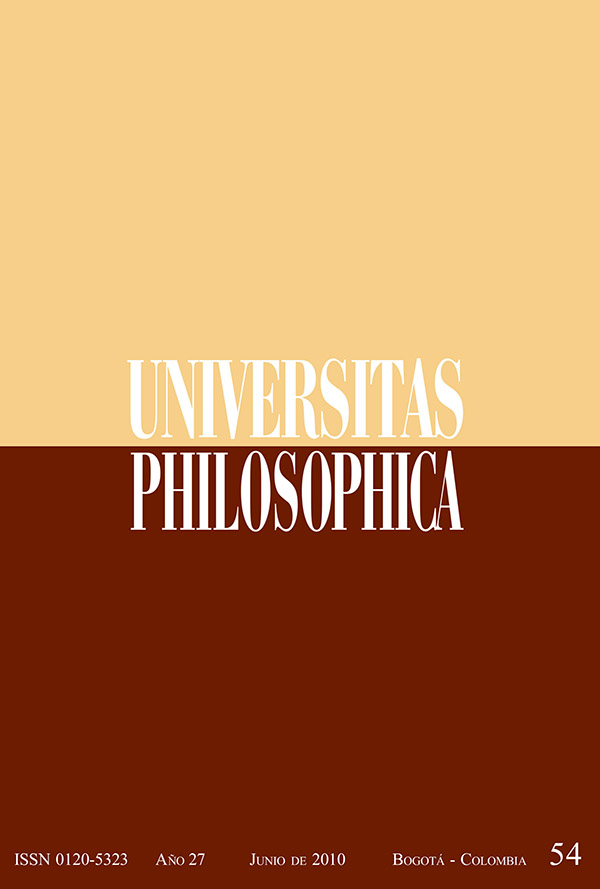Abstract
This essay examines the major categories and approaches of one of the finest works on anthropology in the late twentieth century: Max Scheler’s Man's Place in Nature (1927). We aim to show the bases of the phenomenological anthropology proposed by this Catholic philosopher, whose immediate antecedents were Husserl’s Logical Investigations regarding man-everyday world life correlations, the debate waged by phenomenology to face the incursion of psychology into the objective sciences domain, and the consolidation of several theories of evolution trying to supersede philosophical anthropology as the queen in the explanation of human phenomena. In such a chaotic context, Scheler radicalizes his thesis on the ‘I and the everyday world life’ correlation, and proposes an anthropology developed in a phenomenological spirit.
This journal is registered under a Creative Commons Attribution 4.0 International Public License. Thus, this work may be reproduced, distributed, and publicly shared in digital format, as long as the names of the authors and Pontificia Universidad Javeriana are acknowledged. Others are allowed to quote, adapt, transform, auto-archive, republish, and create based on this material, for any purpose (even commercial ones), provided the authorship is duly acknowledged, a link to the original work is provided, and it is specified if changes have been made. Pontificia Universidad Javeriana does not hold the rights of published works and the authors are solely responsible for the contents of their works; they keep the moral, intellectual, privacy, and publicity rights.
Approving the intervention of the work (review, copy-editing, translation, layout) and the following outreach, are granted through an use license and not through an assignment of rights. This means the journal and Pontificia Universidad Javeriana cannot be held responsible for any ethical malpractice by the authors. As a consequence of the protection granted by the use license, the journal is not required to publish recantations or modify information already published, unless the errata stems from the editorial management process. Publishing contents in this journal does not generate royalties for contributors.


